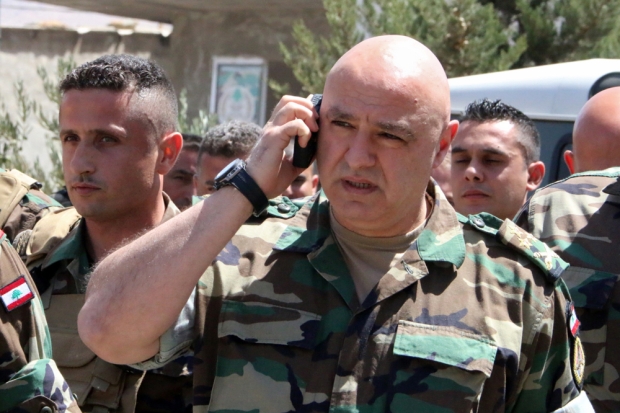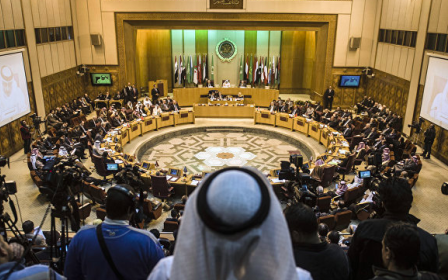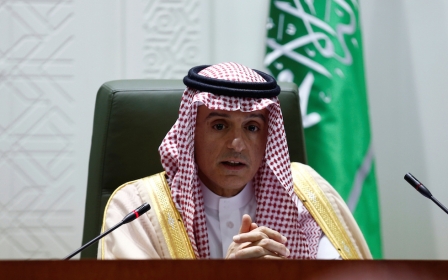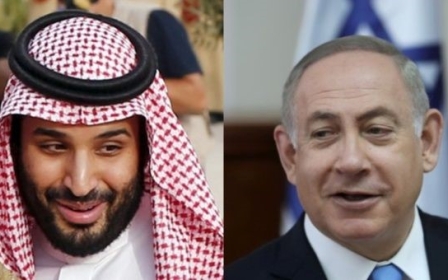Lebanon army chief warns of 'threats of the Israeli enemy'

Lebanon's army chief urged his soldiers on Tuesday to stand fully ready at the southern border to face the "threats of the Israeli enemy".
General Joseph Aoun also called on the troops to stay vigilant for the "good implementation" of UN resolution 1701 to "preserve stability" at the border with Israel.
'I call upon you for full readiness at the southern border to face the threats of the Israeli enemy'
"I call upon you for full readiness at the southern border to face the threats of the Israeli enemy and its violations, and what it is indicating in aggressive intentions towards Lebanon, its people and its army," the army's Twitter account quoted Aoun as saying.
The comments marked a rare acknowledgement by the military of the risk of a new conflict at a time of political crisis in Lebanon.
"The exceptional political situation that Lebanon is going through requires you to exercise the highest levels of awareness and vigilance," Aoun was quoted as saying.
The "cessation of hostilities" resolution ended a destructive war in 2006 between Israel and Lebanese Hezbollah, the Iran-backed military and political movement. The two sides have since avoided a major conflict.
Reuters quoted an anonymous senior Israeli official as saying General Aoun's comments were "nonsense".
Separately, the Israeli military said it had been holding a drill near Israel's border with Syria since Sunday.
The UN maintains a peacekeeping force on the border. Under the resolution, the Lebanese army is responsible for security on its side of the border in a zone from which any other armed force, including Shia Hezbollah, is banned.
Tensions rose earlier this year between Hezbollah and Israel, which has grown alarmed by Iran and its Lebanese ally's expanding influence in Syria and the region.
The shock resignation of Saad al-Hariri as prime minister this month, in a broadcast from Saudi Arabia, plunged Lebanon into a domestic crisis.
It has also thrust the country back onto the forefront of the regional rivalry between Sunni Saudi Arabia and Shia Iran.
Middle East Eye propose une couverture et une analyse indépendantes et incomparables du Moyen-Orient, de l’Afrique du Nord et d’autres régions du monde. Pour en savoir plus sur la reprise de ce contenu et les frais qui s’appliquent, veuillez remplir ce formulaire [en anglais]. Pour en savoir plus sur MEE, cliquez ici [en anglais].





